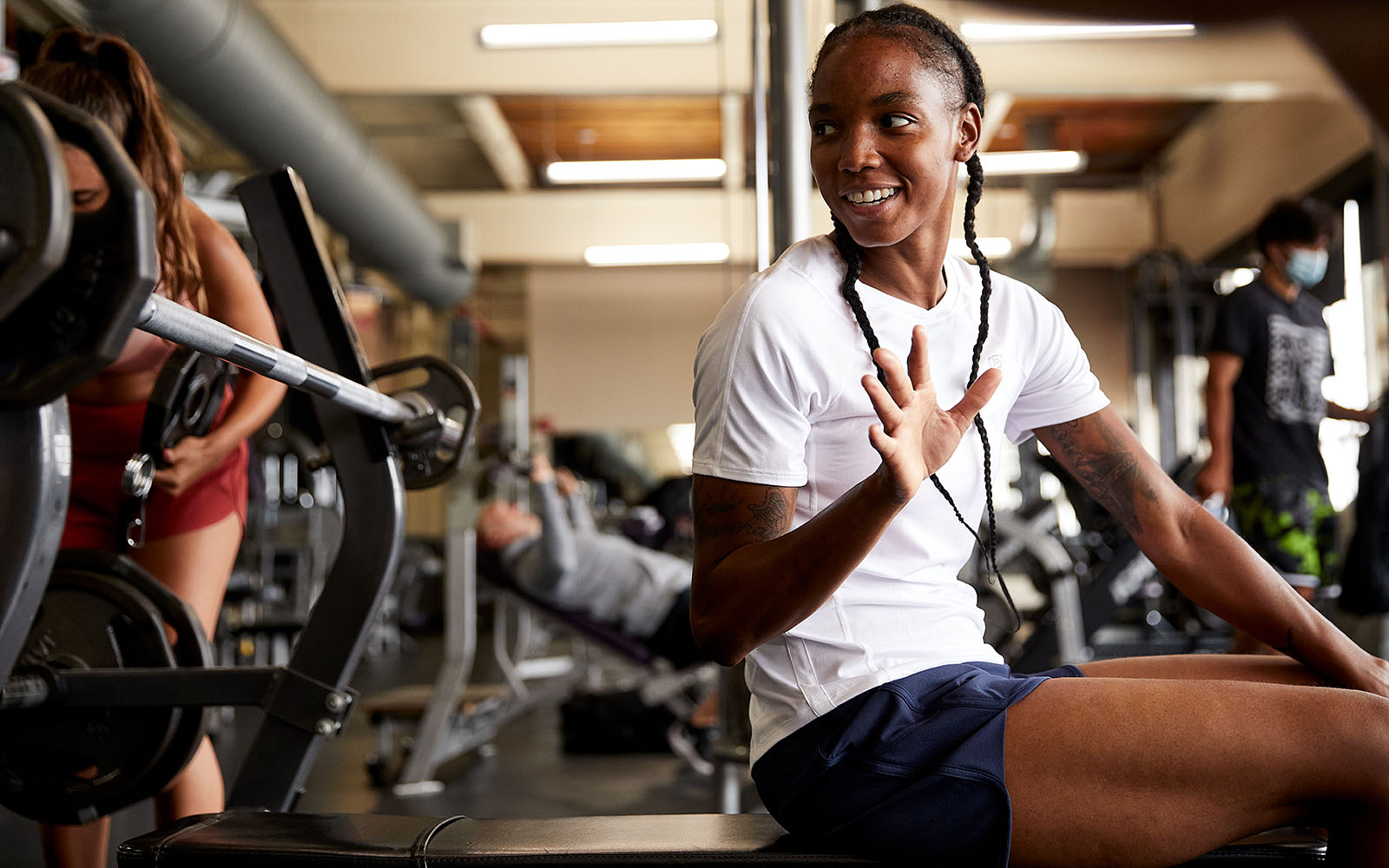High-performance sports require physical strength, endurance, and resilience, often pushing athletes to their limits. Female athletes face unique challenges that go beyond typical injuries in their training and competition.
The physical toll of intense sports can impact a woman's body in hidden ways, affecting performance and recovery. Pelvic health issues and implants are among the most significant challenges women in sports must overcome.
These physical obstacles present unique struggles for female athletes, yet they continue to push boundaries. Women in high-performance sports show remarkable strength in overcoming these challenges and achieving success.
The Hidden Struggles of Female Athletes
Female athletes often face physical challenges that are not immediately visible, making their struggles harder. Issues like pelvic floor dysfunction, urinary incontinence, and pelvic organ prolapse can affect athletic performance significantly.
NIH states that stress urinary incontinence (SUI) and urgency urinary incontinence (UUI) are the most common types of UI. As per the International Urogynecological Association, SUI involves involuntary urine loss during exertion or sneezing. Many women feel embarrassed discussing pelvic floor dysfunction, including incontinence.
These conditions are rarely discussed openly due to the stigma surrounding them in the athletic community. Athletes work hard to maintain peak performance while managing the physical toll of intense training.
Over time, these challenges contribute to fatigue, discomfort, and potential injury in athletes. It is crucial to address these health issues in a way that does not compromise athletic ambitions.
How do female athletes manage pelvic health issues during training camps?
During training camps, female athletes often manage pelvic health issues by integrating rest periods, physiotherapy, and specific pelvic exercises into their schedules. Coaches and medical staff work together to monitor symptoms and adjust the athlete's regimen. Proper management ensures athletes can maintain peak performance without risking further damage to their pelvic health.
The Role of Pelvic Health in Athletic Performance
Pelvic health is crucial for female athletes, especially in sports requiring core strength and stability. When pelvic issues arise, they can directly affect an athlete’s performance and training capacity. Women facing pelvic organ prolapse or severe incontinence may struggle to train and compete effectively.
Some athletes opt for surgical solutions like transvaginal mesh implants to address pelvic floor dysfunction. These implants are designed to restore pelvic health but can cause complications.
ScienceDirect notes that these can include chronic pain, infections, and erosion of the mesh into surrounding tissues. In some cases, the mesh may shift, causing discomfort or even further damage to pelvic structures. Some women experience the mesh cutting into organs, causing health issues that limit training and competition.
Some women experience the mesh cutting into organs, causing health issues that limit training and competition. These issues have resulted in several lawsuits, with many women seeking recompense for their suffering.
The Transvaginal Mesh Lawsuit and Its Implications
According to TruLaw, women who have suffered from complications due to mesh implants often pursue legal action. Lawsuits have been filed against manufacturers for defective products, alleging they failed to warn about the risks. These lawsuits seek compensation for medical expenses, pain, suffering, and lost wages.
As of December 2024, 95% of transvaginal mesh litigation had been settled or ended with verdicts. Manufacturers have spent more than $8 billion in settlements and verdicts to resolve continuing disputes. The transvaginal mesh lawsuit process continues, with lawyers still taking cases for possible settlement or trial.
Many women say that they were not sufficiently educated about the possible risks of the implants before surgery. As the number of cases grows, more women seek justice for the physical and emotional toll on their careers.
How does the legal battle affect an athlete’s career?
The legal battle related to mesh implants can disrupt an athlete’s career, leading to delays in competition. The stress from dealing with lawsuits and ongoing health issues can take a toll on training and focus. However, some athletes view legal action as a necessary step to seek justice for their suffering.
Mental Toughness in Overcoming Physical Challenges
Mental resilience is essential for female athletes dealing with pelvic health challenges and implants. The psychological strain of pelvic issues, especially after surgeries like transvaginal mesh, can be significant.
Health mentions that postoperative depression, also called "postoperative blues," affects 13% to 47% of surgery patients. Lack of support, financial strain, and physical discomfort are all factors that lead to this illness. Studies show that operations, as important life events, might cause sadness in certain people.
Athletes may feel vulnerable and frustrated when their bodies fail to perform as expected due to health complications. Overcoming these mental obstacles is as crucial as physical recovery in their journey. Staying focused on goals and remaining motivated through recovery is vital for success.
Developing mental toughness enables athletes to trust the process while remaining resilient. This perseverance allows female athletes to overcome obstacles and emerge stronger both physically and emotionally.
How do female athletes balance career goals with recovery?
Balancing career goals with recovery requires a comprehensive approach that includes patience, prioritization, and medical guidance. Female athletes must work closely with their teams and healthcare professionals to ensure that their recovery doesn’t hinder long-term career ambitions. Setting realistic expectations and pacing their recovery allows athletes to continue progressing without injury.
Balancing Recovery with Intense Training
Recovery is essential for any athlete, especially for female athletes dealing with pelvic health issues. The recovery period after surgery can be lengthy, as the body requires time to heal. Athletes must balance recovery with their desire to return to sport, which can be mentally challenging.
The risk of reinjury or complications from overtraining is always present during the recovery phase. Many women struggle to find the right balance between rest and intense training.
A structured recovery plan ensures athletes don’t aggravate pelvic health issues while preparing to return to competition. Medical professionals specializing in pelvic health are crucial during this recovery phase. They guide athletes to safely navigate the road to peak performance without causing further harm.
How do athletes prevent reinjury during recovery?
To prevent reinjury, athletes adhere to a recovery plan, perform strengthening exercises, and gradually increase intensity. Medical professionals monitor progress and adjust the plan based on recovery. Athletes also incorporate adequate rest, hydration, and nutrition to support their body’s healing process and ensure they don’t overstrain the affected areas.
Female athletes in high-performance sports face unique physical challenges, especially when it comes to pelvic health. Conditions like incontinence and prolapse can severely impact their athletic careers, affecting performance and confidence. Surgical options, such as mesh implants, can occasionally cause difficulties, complicating the rehabilitation process.
Legal disputes over these implants continue, with many women seeking justice. Overcoming these problems necessitates a comprehensive strategy that includes physical therapy, competent medical treatment, and mental fortitude. Athletes can overcome these challenges and retain their performance by prioritizing recuperation.



Leave a comment
This site is protected by hCaptcha and the hCaptcha Privacy Policy and Terms of Service apply.